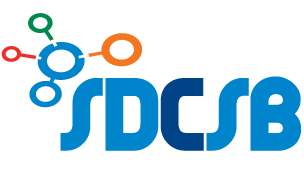Team:UCSD Software/Attributions
From 2014.igem.org
Sponsors
Synthetic Genomics
Synthetic Genomics Inc. was founded to commercialize genomic-driven technologies. Our scientific strength lies in the decades of pioneering research by founders, J. Craig Venter, Ph.D., Nobel Laureate Hamilton O. Smith, M.D., and the leading scientific teams they have assembled. Dr. Venter and his teams have proven track records of making scientific breakthroughs that translate into viable commercial solutions. We would like to extend our heartfelt gratitude to them for supporting our team at iGEM 2014.
San Diego Center for Systems Biology
The Center grew out of the San Diego Consortium for Systems Biology, which has held a series of workshops and symposia with the goal to foster collaborations between technologists, experimental biologists and computational biologists. Started by Amy Kiger, a biologist at UC San Diego, and Sumit Chanda, of the Sanford-Burnham Medical Research Institute in La Jolla, it has been a highly successful grassroots effort funded entirely by local industry. We would like to thank Dr. Trey Ideker, director of SDCSB and Dr. Jason Kreisberg, assistant director of SDCSB, for their efforts in helping us grow as a team and successfully represent UCSD at iGEM 2014.
The Cytoscape Consortium
The Cytoscape Consortium is an independent 501(c)(3) not-for-profit organization which promotes the development and distribution of open source bioinformatic software related to biological networks and which provides public resources to enable the exchange and use of biological networks and related information.
For Cytoscape, we'd like to thank Michael Smoot, Keiichiro Ono, Johannes Ruscheinski, Peng-Liang Wang & Trey Ideker.
The Ideker Lab
The Ideker Lab's goal is to develop a new type of medicine based on knowledge of the complete physical and functional wiring of the cell. They are developing new ways of mapping these wiring diagrams directly from genome-scale measurements (genomic, proteomic, and metabolomic) and for using these maps to translate the increasingly complex data gathered from patients to predict disease outcomes and develop better treatments.
 "
"







